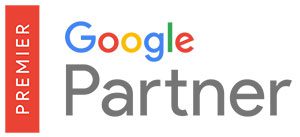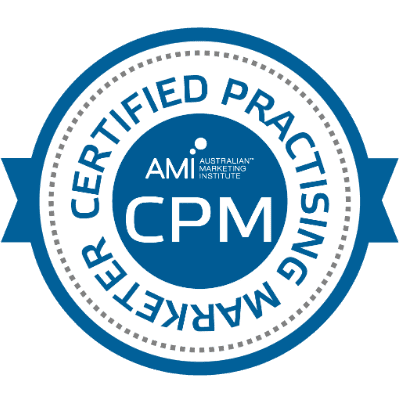7 Reasons to Pay Attention to Local Search
When it comes to local search, it needs to be your top priority. See why it’s essential to dominate it so you beat out your competition.
When you offer a specialised service, it’s important to pay attention to your location-based clientele. People within your region will be your biggest customers because accessibility is key when making buying decisions.
You need to optimize your site to ensure it pops up when people conduct local searches. Not only will site optimization help your search rankings, it will also help you convert leads into customers.
Here are some of the biggest reasons why local search is important.
1. Reviews from Local Customers Will Boost Your Sales
A lot of businesses have a so-so attitude towards reviews. On one hand, they can really help your business stand out and attract customers if they’re good.
On the other hand, a bunch of negative reviews can be disastrous for your organization. Especially, if they’re the first things people see when they search your company.
Websites like Yelp have built an entire business on reviews. Yelp allows people to search for your business to find reviews, pictures, contact and location information.
Yelp also uses a star rating system and lists the top rated businesses in the area.
People who join Yelp are called Yelpers. They get to create a profile page with their picture and name. They can leave business reviews and photos.
The Yelper system gives Yelp credibility. You know the reviews are made by real people who have patronized the business.
In addition to Yelp, Google also has a feature that allows customers to leave reviews.
Organizations can create a Google “My Business” page to promote their company. Customers can also leave reviews on the business page and post pictures.
Reviews also help with search rankings. Google takes your digital imprint into account. If people are talking about your page and visiting your site, they’ll take notice.
2. Location-Specific Keywords Help You Target Customers
Keyword planning and research are going to set your business apart from the competition.
Once you’ve found the right keywords, now it’s time to start creating keyword rich content.
Avoid keyword stuffing. Keyword stuffing is when webpage content is filled with the same keyword used repetitively in an unnatural way.
For example, the keyword “maid service” can be used to show that a company offers cleaning services.
If page content features the phrase “maid services” 50 times, then it’s considered keyword stuffing.
Google will give you negative rankings for keyword stuffing. Instead, try using a keyword planner to find the right keywords for your business.
A keyword planner will show you the search volume for specific keywords. Search volume is the number of hits a keyword or keyword phrase gets.
It’s best to rank for a variety of keywords to encourage web traffic to your site.
3. Google Local Pack Displays Local Businesses on the First Search Page
The Google Local Pack is a list of local businesses that are displayed underneath a map on the first results page.
The Local Pack shows the business’ name, location, and business hours. It will also list the number of Google reviews your business has.
The Local Pack used to display several entries but Google changed the display.
The biggest reason for the change was mobile optimization. Several entries couldn’t be displayed comfortably on a mobile device.
The key to getting your business into the Local Pack is consistency. Your business’ contact information should be clearly displayed on your website and on other websites and directories.
Make sure your contact information is registered with the local Chamber of Commerce and other community organizations.
Google trusts these sites and it’s more likely to promote your business if you’re linked to these networks.
4. Reputation Management is Vital to Business Growth
In all honesty, your business is only as good as its reputation. Poor reviews and ratings will not lead to new sales or customers.
When you’re business receives poor reviews, it’s time to start analyzing company culture and productivity.
It can be hard to thoroughly access your business when you’re fully engrossed in the company, so the best way to see how customers feel is to interact with them.
Conduct surveys and let the customers tell you what you can improve on. You should also interact with customers online and through social media.
If you’ve created a Google My Business page or Yelp listing, you can respond to customer complaints.
Openly interacting with angry customers online in a respectful manner makes you look good. Potential customers see that you have the right customer service skills and attitude to remedy uncomfortable situations.
A positive online persona can help you win over users conducting a local search.
5. Most Users Conduct Local Searches on Their Phone
Google changed their entire display format for a reason. In 2015, research showed that people conducted more mobile searches than desktop searches.
In this high-paced environment, people need to access information when on the go. They don’t have time to go to a desktop or wait for a website to load.
Americans spend approximately 87 hours per month browsing their smartphones, so the majority of their local searchers will be from their phones.
Mobile optimized sites perform better within searches and get higher rankings from Google.
How do you optimize your site for mobile devices?
You improve the user experience through faster page loading times, incorporating fluid layouts, and designing web content for touchscreens.
6. The Majority of Your Customers Will be Local Residents
Service-based industries such as food services thrive from local support. The fact remains that most of your customers will live within a 25-mile radius of your business.
That’s enough reason to make them a priority. Their proximity increases the chances they’ll be repeat customers. If they enjoy your service, they’ll also encourage their nearby friends and relatives to support your business.
7. Link-Building Helps You Gain Relevancy
One of the best things link-building does is build local traffic. When local sites and influencers post links on their page to your website, it boosts your search rankings and drives new traffic to your site.
But link-building can turn into keyword stuffing if it isn’t done properly. You need to reach out to the local newspaper, journalists, bloggers, and critics to encourage them to write about your company.
Try hosting a mixer or another event and invite local influencers. Once they start talking about your company, it will create some internet buzz and new site visits.
You can also post coupon offers on deal sites like Groupon. Most Groupon users conduct local searches and will patronize your business if they see a good discount.
Groupon also offers links back to your website, so it’s a great link-building resource.
Conclusion
If you need help building the right local search strategy, Felicity Jane Digital can help! Contact us today to start a conversation about taking your business to the next level.






